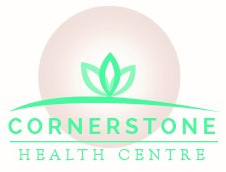The Role of Insurance Coverage in the Georgetown Back Surgery or Non-Surgical Care Choice
“Back surgery is one of the most overused types of surgery as well as the most common ailment that sends patients to doctors, chiropractors, and physical therapists,” conveys Crain’s Detroit Business magazine’s article titled Health Insurers Look for Ways to Cut Costs with Back Surgery. What a way to open an article! It continues:
- $90 billion on low back pain alone a year
- 1.2 million spinal surgeries annually
- $60,000 to $110,000 per lumbar fusion surgery (the fastest-growing type of surgery in the past decade)
The back surgery failure rate, the so-called “failed back syndrome” or the more “politically correct” term “post-surgical continued pain syndrome,” may be as high as 50%. (1) With healthcare spending in the US exceeding $3.5 trillion - $10,739 per person – it is no wonder that insurers seek another way to cut costs, particularly when one-third of the money is spent for hospital care of chronic illnesses. (2) Dr. Butwell is well-trained and confident in offering non-hospital-based care to help Georgetown back pain – chronic and acute – patients find relief of and manage their back pain – as well as post-surgical continued back pain - non-surgically.
LOW BACK PAIN FACTS
Low back pain is the foremost cause of years lived with disability around the world. Today, recommendations for low back pain relief care discourage pain medications, steroid injections and spine surgery and encourage physical therapy and psychological therapy. Healthcare systems tend to struggle with these new approaches. Why? Pharmaceutical companies’ financial interests, old payment systems that favor medical care, outdated traditions, and legal, personal, political, and societal beliefs of us all. These concepts are shared in the Bulletin of the World Health Organization, believe it or not. (3) Dr. Butwell reads this with interest.
BACK SURGERY CHOICE
Considering these facts, it’s not hard to believe that some back pain sufferers will choose back surgery over non-surgical care of their back pain. “Patients go where insurance pays, even if it is surgery.” In one study, back pain sufferers made the choice to see a primary care physician (PCP) or physical therapist (PT) or chiropractor first because of their health plan type, co-payment, and deductible. Amending these things to make them more valuable/less expensive/less restrictive as to provider type might well inspire low back pain sufferers to choose non-hospital, conservative treatment rather than back surgery. (4) Dr. Butwell is all for this! Less than 1% of back pain sufferers require back surgery. (5) Dr. Butwell is prepared to assist the rest of the Georgetown back pain sufferers cope with their back pain and rework their lifestyles to live with the spine they have and deal with its episodes of pain and relief.
RECURRENT BACK PAIN
Georgetown back pain sufferers are not alone if their back pain comes back. It happens. It’s controllable. It’s manageable. Some data first: Within a year of recovery, 69% of patients had another episode of back pain of some sort. What risks trigger a return of back pain? Awkward postures, long sitting times, and more than 2 prior back pain experiences. (6) It’s ok though. Truly! Dr. Butwell helps Georgetown back pain patients navigate these recurrences and deal with them so they don’t limit anyone’s enjoyment of life. We have a treatment plan!
CONTACT Dr. Butwell
Listen to Dr. Kimble Cater on The Back Doctors Podcast with Dr. Michael Johnson discuss how he helped an expectant mother with her repeated episodes of back pain. Whether you are pregnant or not, Georgetown chiropractic care at Dr. Butwell can help you cope with repeated episodes of back pain, too.
Schedule a Georgetown chiropractic appointment at Dr. Butwell for back pain relief. Our care is not overused! The gentle, effective, evidence-based system of Cox® Technic look for 50% relief within 4-6 weeks of care and often gets 70%, 80%, 90% and greater for many of our patients at less cost – in terms of finances and lifestyle – than back surgery.

